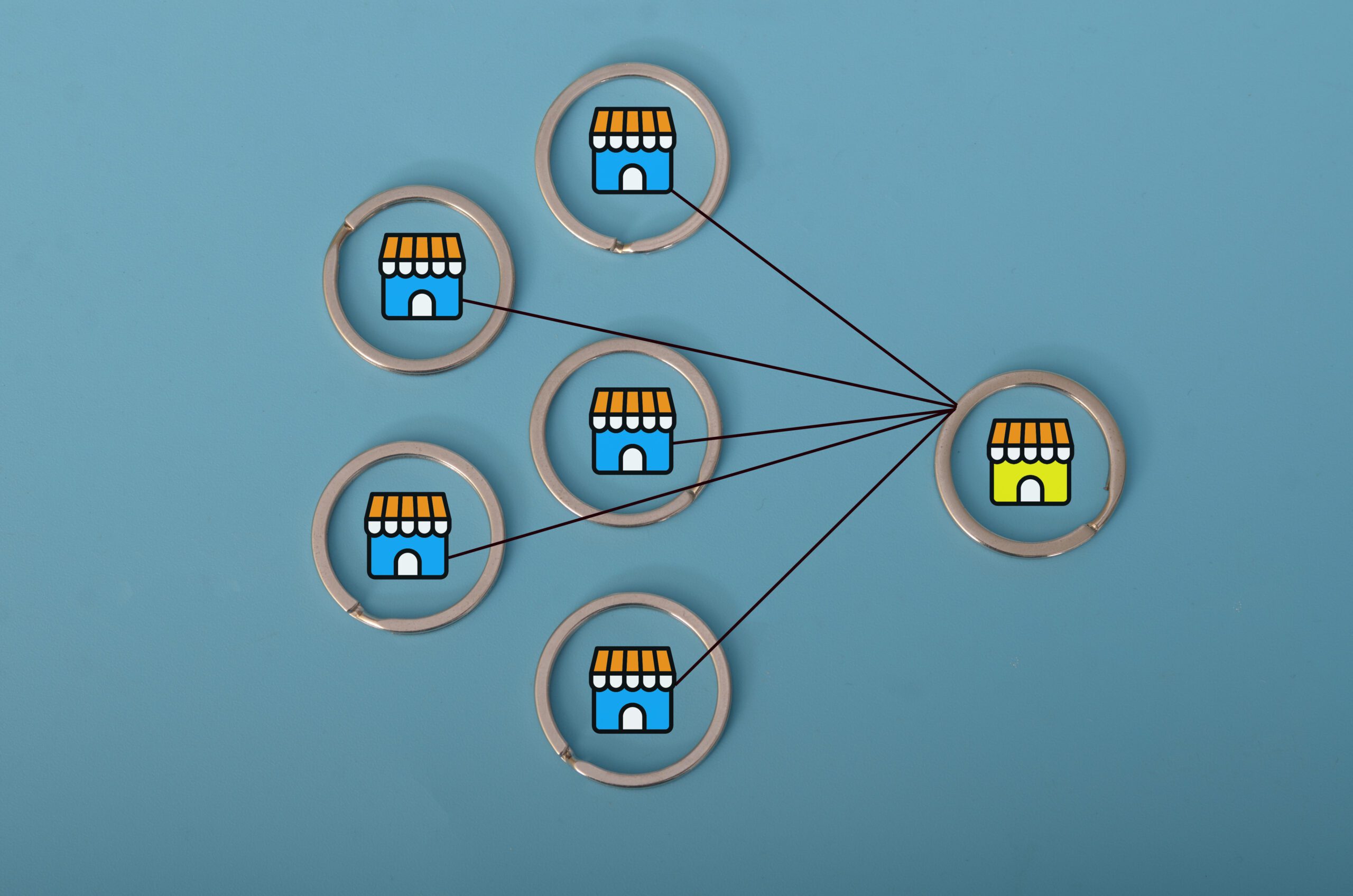Why Franchise Brands Struggle to Control Local Reputation

A strong local reputation can be the deciding factor in whether franchise brands thrive or fade into the background. With 78% of consumers trusting online reviews as much as personal recommendations, public perception in each local market matters more than ever.
For franchise owners, maintaining a consistent brand reputation across locations is critical, but far from easy.
What Is Local Reputation—And Why Does It Matter?
Local reputation refers to how a franchise is perceived within a specific community. It’s shaped by customer feedback, online reviews, word of mouth, and how well each location delivers on brand promises. This local perception can significantly impact a franchise’s success in a specific market, affecting foot traffic, sales, and overall growth.
In many ways, local reputation acts as a direct reflection of your franchise owners, your support system, and your commitment to quality. A single poor experience—or a few low-rated reviews—can erode trust and negatively impact sales, especially when people rely on search results and review platforms to inform their shopping or dining decisions.
For franchise brands offering franchises across multiple markets, reputation isn’t just about maintaining national visibility—it’s about winning local trust, store by store, and building a strong family of franchisees who share your brand’s values and vision.
Why Do Franchise Brands Struggle with Local Reputation?
Even the best franchises face structural barriers that make their local reputation hard to manage. Here’s why:
1. Limited Control Over Day-to-Day Operations
Each location is operated by a different franchisee, with varying levels of experience, staffing, and commitment to the brand’s values. While the franchisor can offer tools, training, and guidelines, it can’t micromanage daily interactions or ensure every customer receives the same level of care.
Without strong operational consistency, franchise brands risk fragmented experiences that impact how the brand is perceived locally. This lack of uniformity in operating and service can be the weak link that undermines a franchise’s reputation.
2. Inconsistent Brand Messaging
Even with marketing templates and corporate assets, franchisees may deviate from brand-approved messages, especially on local social media pages or community boards. This leads to mixed signals and weakens the overall brand image.
Some franchise owners may not prioritize marketing, creating gaps in local visibility that competitors can fill. Enhancing local marketing support and providing easy-to-use materials can help franchisees maintain consistent messaging aligned with the brand’s core values.
3. Fragmented Online Review Management
Managing online reviews across dozens—or hundreds—of locations is a massive undertaking. Most franchise brands struggle to track and respond to all customer feedback in real time. When negative reviews go unanswered, it signals a lack of care and drives potential customers away.
Franchisors need scalable review management software and local-level training to keep up. Using reputation management tools can help monitor sentiment, flag issues early, and ensure timely responses that demonstrate care and commitment.
4. Cultural Differences Across Markets
A campaign or service that works in one city might not resonate in another. Franchise opportunities across North America (especially in the U.S. and Canada) must account for local customs, expectations, and demographics. Ignoring these nuances can alienate communities and weaken local traction.
Strong marketing support includes market-specific insights, not just broad campaigns. Tailoring your approach to fit local cultures and preferences allows franchisees to engage authentically and build meaningful connections with their customers.
What Happens When Local Reputation Fails?
A weak local presence doesn’t just slow growth—it can actively harm the entire franchise system.
Here’s what’s at risk:
- Loss of trust from potential customers who see negative reviews or inconsistent service
- Franchisees underperforming or failing due to a lack of foot traffic
- Slower sales and reduced interest from new franchisees evaluating the brand
- Missed opportunities to grow into new markets or fill high-potential territories
In short, poor local reputation costs time, investment, and momentum. And once trust is lost, it takes far more effort to rebuild. This can stall the growth of your franchise brand for years and limit your ability to attract entrepreneurs interested in joining your franchise family.
How Can Franchise Brands Improve Local Reputation?
Even with decentralized operations, franchise brands can implement systems to regain control and bring new life to their local presence. Here’s how:
1. Strengthen Onboarding and Training
Give new franchisees the tools to succeed from day one. Your training should cover not only operations but also customer service expectations, reputation management protocols, and how to utilize brand-approved marketing materials effectively.
The sooner your franchisees understand the “why” behind your brand values, the better they’ll uphold them in their own locations. This foundation helps maintain operational consistency and fosters a strong culture of care and accountability.
2. Use Reputation Management Software
Tools like Listen360, Birdeye, or Yext help franchise brands monitor and respond to online reviews across all locations. These platforms allow franchisors to:
- Track sentiment trends by region
- Flag reputational issues before they escalate
- Compare performance across units
- Respond to feedback quickly and professionally
This empowers both corporate teams and franchise owners to stay proactive and maintain a positive reputation across the entire system.
3. Centralize Local Marketing Support
Not every franchisee is a marketer. That’s why strong marketing support matters. Provide plug-and-play social media assets, email templates, and local ad strategies. Pair these with optional PR partnerships to boost brand visibility in key markets.
Make it easy for franchisees to present themselves well online without wasting time managing their business. This support enhances local marketing efforts and helps fill gaps in brand presence.
4. Encourage Customer Feedback and Engagement
Local communities want to feel heard. Encourage franchisees to gather feedback regularly through post-visit surveys, review requests, or local events.
Responding to feedback (both positive and negative) shows franchise brands care about the people they serve. It also boosts review volume and signals active engagement, which can improve search rankings and attract new customers.
5. Create Internal Accountability and Recognition
Highlighting happy franchisees and rewarding top performers reinforces what good reputation management looks like. Share their stories, successes, and strategies across your network.
Let other franchisees learn from what’s working, and build a culture where reputation is seen as a shared commitment, not just a corporate directive. This fosters a strong family mindset and encourages everyone to contribute to the brand’s success.
Final Thoughts
Reputation is local—especially for franchise brands built on trust, community, and consistent service. While you can’t control every customer interaction, you can equip your franchisees with the tools, training, and support to present themselves well.
When your local locations earn trust, your national brand grows stronger. By enhancing operational consistency, leveraging data-driven reputation management, and providing comprehensive marketing support, franchise brands can thrive more quickly and attract a greater number of entrepreneurs interested in joining their family.
If you’re looking to improve how your franchise is perceived in every market—or want to offer new franchisees a better starting point—investing in local reputation is the next essential step to ensure your franchise brand’s long-term success.


